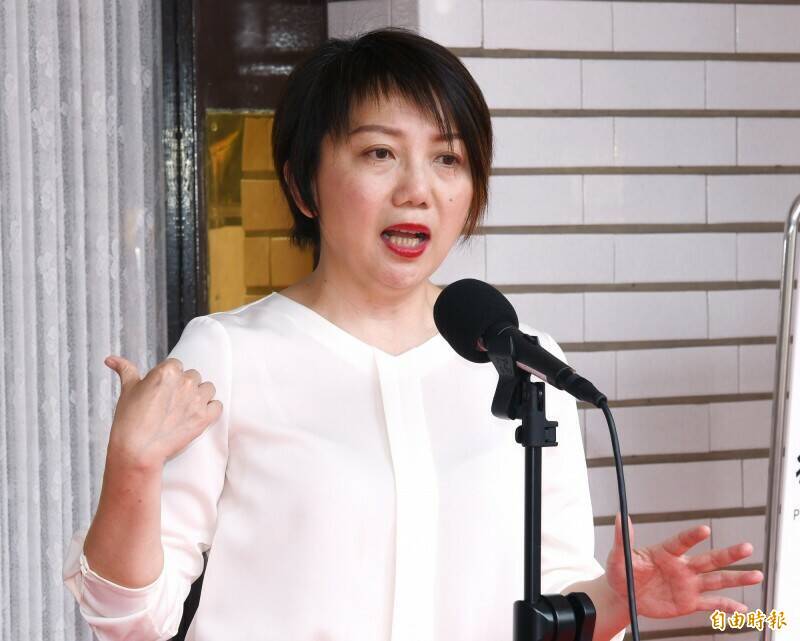Fan Yun suggested that if there is a consensus in the society, we can consider amending the law to include "personnel checks" in the election bulletin. Such discussions and social dialogue will help transitional justice.
(file photo)
[Reporter Chen Zhengyu/Taipei Report] To promote the transfer at the end of May last year, Fan Yun, a legislator of the Democratic Progressive Party, proposed the "Draft Amendment to the Political Archives Act" in order to strengthen the disclosure of information about the oppressive system.
Regarding the "personnel investigation" during the authoritarian period, Fan Yun suggested that if there is a consensus in the society, the law can be amended and included in the election bulletin, and the parties concerned can also defend and explain themselves. Such discussions and social dialogue will help transitional justice.
There were many cases of human rights violations during the authoritarian period in our country. How many political files are there?
Fan Yun was interviewed and said that since the 1989 Republic of China, the Archives Bureau has collected and checked at least seven times, and each time thousands or even tens of thousands of cases were unearthed, the number of political files is like a bottomless pit. More than 77,000 cases have been cleared, and it is still unknown how many more cases there are.
Please read on...
In addition, many files are still permanently classified or restricted in use. According to Fan Yun’s assessment, the original file production agencies, especially intelligence agencies such as the National Security Bureau and the Bureau of Investigation, still regard “current intelligence work” and “authoritarian rule” as defined by political files. "Intelligence work during the period" and cite the "State Secrets Protection Law" to classify the archives as permanent secret; application, masking parts of the content for up to 50 years.
According to the statistics of the Archives Bureau, out of the 77,000 cases of political files that have been cleared, more than 720 million cases are restricted applications, and some information has been blocked.
Fan Yun pointed out that the reason for restricting the application may involve personal privacy, or "has the risk of seriously affecting national security or foreign relations", but the original archives agency does not need to provide specific explanations.
For example, last year she applied for access to her political files. Of the 34 cases provided by the Archives Bureau, as many as 31 cases had some information blocked, and the proportion of applications restricted on the grounds of national security was as high as 91%.
According to this, Fan Yun said that she proposed the "Political Archives Regulations Amendment Draft" last year, hoping to break the curse of confidentiality and concealment of archives, and the draft version of the Archives Bureau is expected to be submitted to the Executive Yuan in March.
The key points of the amendment include, first, permanently confidential files should be declassified; second, the information of personnel in the oppressive system should be disclosed; third, if the archives agency is unwilling to release a specific file, it should explain the specific reasons and obtain the consent of the higher authority; Fourth, improve the review of disputed files, and an independent review committee will review the opening of disputed files.
In addition, Fan Yun mentioned that since the implementation of the "Political Archives Regulations" announcement in 2018, the cumulative number of applications has only been 973. Compared with the total number of more than 70,000 cases, the number of applications is quite low; she believes that the Archives Bureau should understand the reasons. It is because the public does not know that they can apply, or the application process encounters difficulties, and the situation of low number of applicants should be improved.
As for the handling of personnel investigations, Fan Yun pointed out that some countries have regulations for the election of public officials, requiring them to self-disclose their records of human rights abuses during the authoritarian period. , which can also explain the different attitudes towards human rights.
Fan Yun said that this issue is still under discussion. It may be difficult to pass the amendment at this stage, but it can promote social dialogue, how to treat people who violated human rights during the authoritarian period, and their attitudes towards public office. These discussions and social dialogue are even more important. Contribute to transformational justice.
